Android vs iOS 2024.Which is better iOS or Android?
Last updated on January 9th, 2024 in General
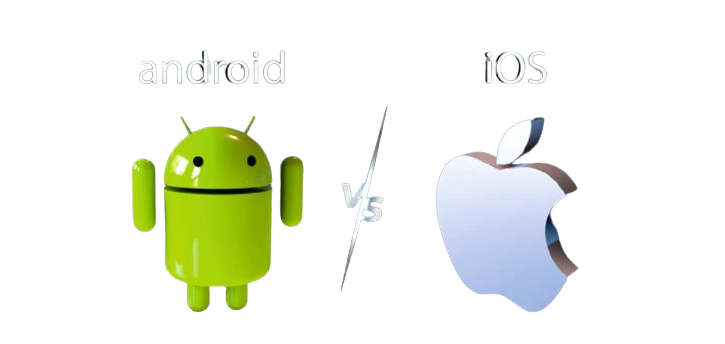 Welcome to the battle of the tech titans – Android vs iOS! In a world dominated by smartphones, these two operating systems have taken center stage, captivating users with their unique features and functionalities. Whether you’re an Android enthusiast or an iOS devotee, it’s hard to deny the impact these platforms have had on our daily lives.
Welcome to the battle of the tech titans – Android vs iOS! In a world dominated by smartphones, these two operating systems have taken center stage, captivating users with their unique features and functionalities. Whether you’re an Android enthusiast or an iOS devotee, it’s hard to deny the impact these platforms have had on our daily lives.
But which one is truly better? It’s a question that has sparked countless debates among tech enthusiasts and smartphone aficionados alike. In this blog post, we’ll dive deep into the realms of Android vs iOS, exploring their history, user interface, app availability, security measures, customization options, affordability factors, and future predictions.
By the end of our exploration journey together, you’ll be equipped with all the knowledge you need to make an informed decision on whether Android or iOS reign supreme in 2024.
So buckle up and get ready for a thrilling ride as we unravel the mysteries behind these two behemoths of mobile technology. Let’s delve into what makes Android vs iOS tick and discover which operating system will emerge victorious in this epic showdown!
Table of Contents
Android vs iOS have both come a long way since their inception, revolutionizing the mobile industry in their own unique ways. Android, developed by Google, was first released in September 2008. It quickly gained popularity with its open-source nature and ability to run on multiple devices from different manufacturers.
iOS, on the other hand, was introduced by Apple in June 2007 with the launch of the first iPhone. Known for its sleek design and user-friendly interface, iOS captured the hearts of many users worldwide.
Over the years, both platforms have witnessed significant growth and evolution. Android has dominated the global market share due to its availability on various devices at different price points. This flexibility has allowed Android to reach a wider audience and cater to diverse needs.
iOS, while being limited to Apple devices only, has built a loyal customer base who appreciate its seamless integration within Apple’s ecosystem. With regular updates and enhancements, iOS continues to offer an intuitive user experience that is hard to beat.
Both operating systems have played a crucial role in shaping our digital lives today. From introducing innovative features like voice assistants (Google Assistant for Android and Siri for iOS) to enhancing security measures such as biometric authentication (fingerprint scanner or Face ID), they constantly strive towards delivering cutting-edge technology.
In terms of app availability and quality, both platforms excel but differ slightly in their approaches. The Google Play Store offers a vast array of apps ranging from free options supported by ads to paid apps with advanced features. On iOS App Store, you will find curated selections that prioritize quality over quantity.
When it comes to customization options, Android takes the lead with its highly customizable interface allowing users to personalize their device according to their preferences through widgets, themes, launchers etc., while iOS maintains a more uniform look across all devices providing a consistent experience throughout.
Considering affordability and compatibility factors can also influence your choice between Android or iOS. While there are high-end flagship devices available on both platforms, Android offers a wider range of budget-friendly options catering.
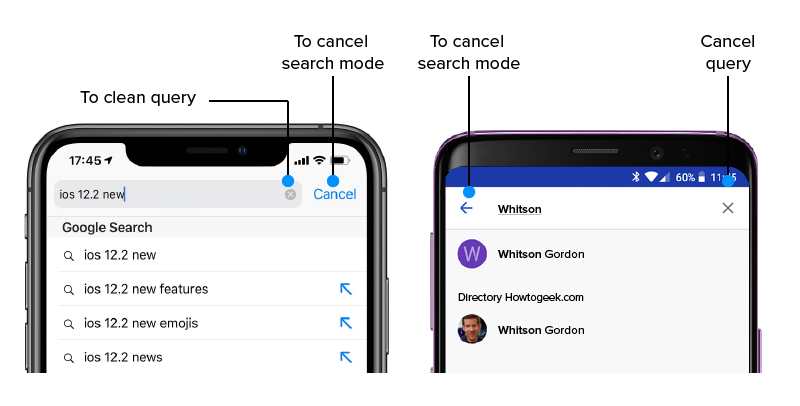 When it comes to comparing the user interface (UI) of Android vs iOS, both operating systems have their own unique design philosophies. Android focuses on customization and flexibility, allowing users to personalize their device with widgets, themes, and different app launchers. On the other hand, iOS emphasizes simplicity and consistency across all devices.
When it comes to comparing the user interface (UI) of Android vs iOS, both operating systems have their own unique design philosophies. Android focuses on customization and flexibility, allowing users to personalize their device with widgets, themes, and different app launchers. On the other hand, iOS emphasizes simplicity and consistency across all devices.
One of the key differences in UI is the home screen layout. Android offers a grid-based system where users can arrange icons anywhere on their screen or even create multiple home screens for easy access to apps. In contrast, iOS follows a more structured approach with a fixed grid layout that automatically organizes icons in rows and columns.
Navigation within the operating systems also varies. Android relies heavily on virtual buttons located at the bottom of the screen for functions like going back or accessing recent apps. In comparison, iOS uses gestures such as swiping up from the bottom to return to the home screen or swiping down from various positions for notifications.
The notification system is another aspect where Android vs iOS differ in terms of UI. Android provides an expandable notifications panel that allows users to view detailed information without leaving an app. Meanwhile, iOS displays notifications as banners or alerts at the top of the screen which can be easily dismissed with a swipe.
While both operating systems offer intuitive user interfaces tailored to their respective design principles, personal preference plays a significant role in determining which one suits you best. Whether you prioritize customizability or simplicity will ultimately dictate your choice between Android’s flexible UI or iOS’ streamlined experience.
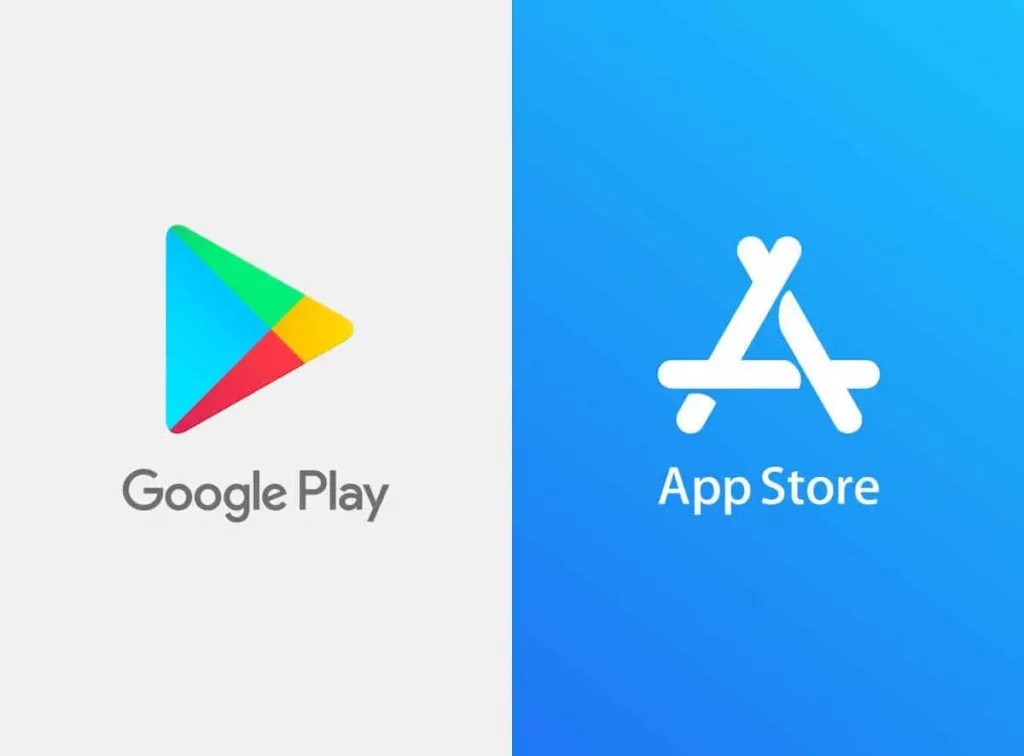
When it comes to app availability and quality, both Android and iOS have their strengths. Android, being an open-source platform, offers a vast range of apps on the Google Play Store. With millions of apps to choose from, users can find everything from games to productivity tools.
On the other hand, iOS has its own App Store that is known for its curated selection of high-quality apps. Apple’s strict review process ensures that only well-designed and reliable applications make it onto the store. This results in a more streamlined experience for users who value quality over quantity.
However, it’s worth noting that some popular apps often launch on iOS first before becoming available on Android. While this gap has significantly narrowed in recent years, there may still be instances where certain apps or features are exclusive to one platform.
Whether you prioritize variety or stringent quality control will determine which operating system suits your app needs best. It’s always a good idea to research specific app availability before making a decision between Android and iOS.
 Security and privacy are two crucial aspects that users consider when choosing between Android vs iOS. Both operating systems have made significant strides in enhancing these features to provide a safe environment for their users.
Security and privacy are two crucial aspects that users consider when choosing between Android vs iOS. Both operating systems have made significant strides in enhancing these features to provide a safe environment for their users.
Android has implemented various security measures to protect user data. With features like Google Play Protect, which scans apps for malware before installation, and regular security updates from the manufacturers, Android ensures that its users are protected from potential threats. Additionally, Android offers options like app permissions control and fingerprint scanning for added security.
On the other hand, iOS is known for its robust security system. Apple’s closed ecosystem provides a more controlled environment where all apps go through rigorous screening processes before being available on the App Store. This reduces the chances of malicious apps making their way onto iPhones or iPads. Furthermore, iOS devices utilize hardware-based encryption to safeguard user data effectively.
While both platforms prioritize user privacy, they adopt different approaches. Android allows more customization options but requires careful management of app permissions to maintain privacy levels. In contrast, iOS focuses on preserving user privacy by minimizing data collection and giving users more control over how their information is shared with third-party apps.
Both Android and iOS have taken significant steps towards improving security and privacy features to ensure user safety. Whether you prefer one over the other depends on your individual needs and preferences when it comes to balancing customization options with stringent security measures, like using VPN for both of them.
Customization is a key factor when it comes to choosing between Android vs iOS. Both operating systems offer different levels of customization options, allowing users to personalize their devices according to their preferences.
Android takes the crown in terms of customization, providing users with endless possibilities to customize their home screens, widgets, themes, and even system settings. With Android, you can change your launcher or install third-party launchers that completely transform the look and feel of your device. You can also choose from a wide range of icon packs and fonts to make your phone truly unique.
On the other hand, iOS has its own set of customization features but is more limited compared to Android. Users can rearrange app icons on the home screen and create folders for better organization. Additionally, you can choose from a variety of dynamic wallpapers or set your own custom wallpaper.
However, iOS does not allow third-party launchers or extensive changes to the user interface like Android does. This may be seen as a drawback for those who enjoy customizing every aspect of their device.
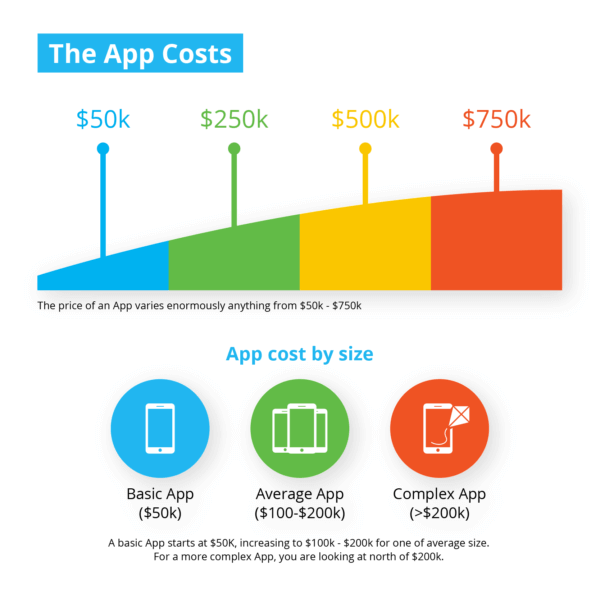 Affordability and compatibility are two crucial factors to consider when choosing between Android and iOS. In terms of affordability, Android devices generally offer a wider range of options across different price points. From budget-friendly smartphones to high-end flagship models, there is something for everyone.
Affordability and compatibility are two crucial factors to consider when choosing between Android and iOS. In terms of affordability, Android devices generally offer a wider range of options across different price points. From budget-friendly smartphones to high-end flagship models, there is something for everyone.
Android’s open-source nature allows for competition among manufacturers, resulting in more affordable devices with impressive features. On the other hand, iOS devices like iPhones tend to be more expensive, catering to a premium market segment.
When it comes to compatibility, Android takes the lead due to its flexibility. It supports various file formats and easily integrates with other platforms and services. This makes sharing files between devices effortless.
On the contrary, iOS may have some limitations in terms of compatibility as it is designed specifically for Apple products. While this can provide a seamless experience within the Apple ecosystem, it might pose challenges when trying to connect or transfer files with non-Apple devices or software.
Whether affordability or compatibility holds more weight depends on individual preferences and needs. Consider your budget constraints and desired level of device integration before making a decision that best suits you!
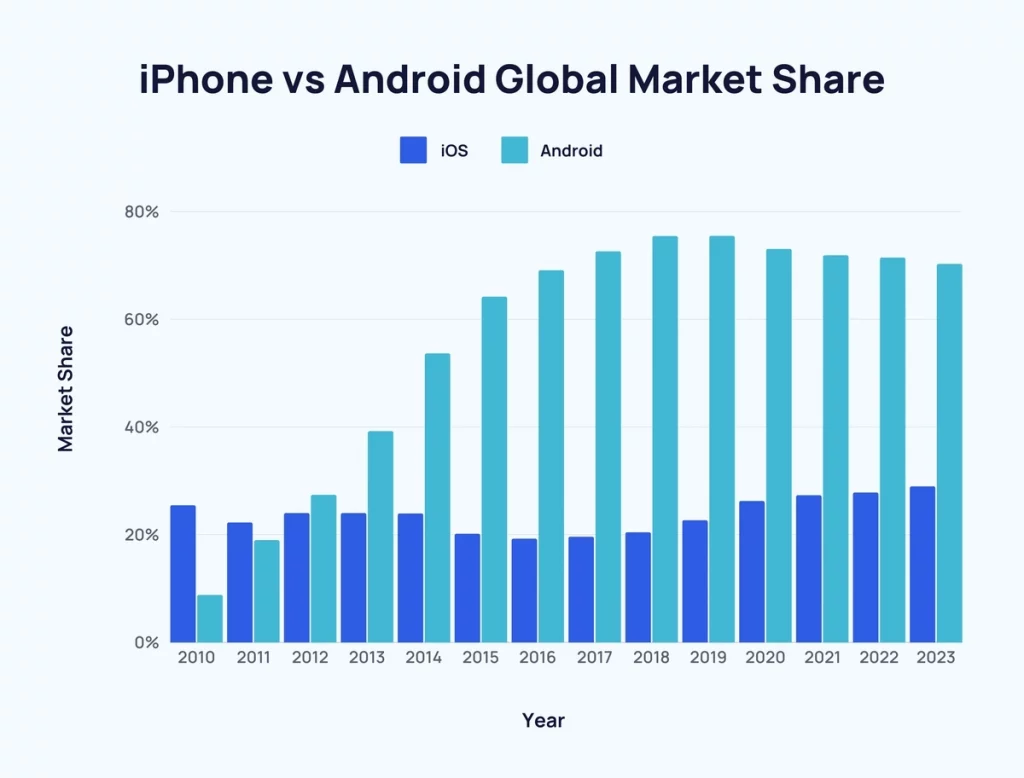 As we look ahead to the future of mobile operating systems, both Android vs iOS show great promise in terms of innovation and advancements. With each passing year, we can expect to see exciting developments that will shape the way we interact with our smartphones.
As we look ahead to the future of mobile operating systems, both Android vs iOS show great promise in terms of innovation and advancements. With each passing year, we can expect to see exciting developments that will shape the way we interact with our smartphones.
One area where both platforms are likely to focus is artificial intelligence (AI). AI-powered virtual assistants such as Google Assistant and Siri have already become integral parts of our daily lives. In the coming years, these assistants will become even more intelligent, offering personalized suggestions and making our lives easier than ever before.
Another trend that is set to continue is the integration of smart home devices into mobile ecosystems. Both Android and iOS have made significant strides in this area, allowing users to control their lights, thermostats, and other connected devices with a simple tap on their smartphone screens. We can expect this integration to become even more seamless in the future.
Furthermore, augmented reality (AR) has gained traction in recent years with apps like Pokémon Go capturing worldwide attention. The ability to overlay digital information onto real-world environments opens up endless possibilities for gaming, shopping experiences, education, and much more.
Additionally, we may witness a greater convergence between smartphones and wearable devices like smartwatches or augmented reality glasses. With improved hardware capabilities, devices will be able to handle advanced applications seamlessly, bringing us closer to a truly integrated experience across different form factors.
Lastly, privacy concerns will remain at the forefront. Both Android vs iOS are constantly working on enhancing security features and giving users more control over their data. We can anticipate stricter privacy regulations being implemented, as well as increased transparency regarding data collection practices by app developers.
When it comes to choosing between iOS and Android, the question of which is better has been a topic of debate for years. Both operating systems have their own unique features and advantages that make them popular among users.
For some, iOS offers a sleek and intuitive user interface that is easy to navigate. The design elements are consistent across all devices, giving users a seamless experience. On the other hand, Android provides more customization options with its open-source nature, allowing users to personalize their devices according to their preferences.
In terms of app availability and quality, both platforms offer a wide range of applications in their respective app stores. However, iOS tends to have more exclusive apps and games that are often released first on the platform.
Security and privacy features are also important considerations for many users. Apple’s strict control over its App Store ensures that apps undergo rigorous vetting processes before they are made available to users. Additionally, regular software updates from Apple help protect against security vulnerabilities.
Android, on the other hand, allows for greater flexibility when it comes to app installation but may be more susceptible to malware due to its open-source nature. However, Google has implemented various security measures in recent years.
Affordability is another factor worth considering when comparing these two operating systems. While iPhones tend to be pricier than most Android devices, there are budget-friendly options available for both platforms.
Lastly, compatibility plays an important role as well; iOS works seamlessly with other Apple products such as Macs and iPads while Android offers compatibility with a wider range of devices including smartphones from different manufacturers.
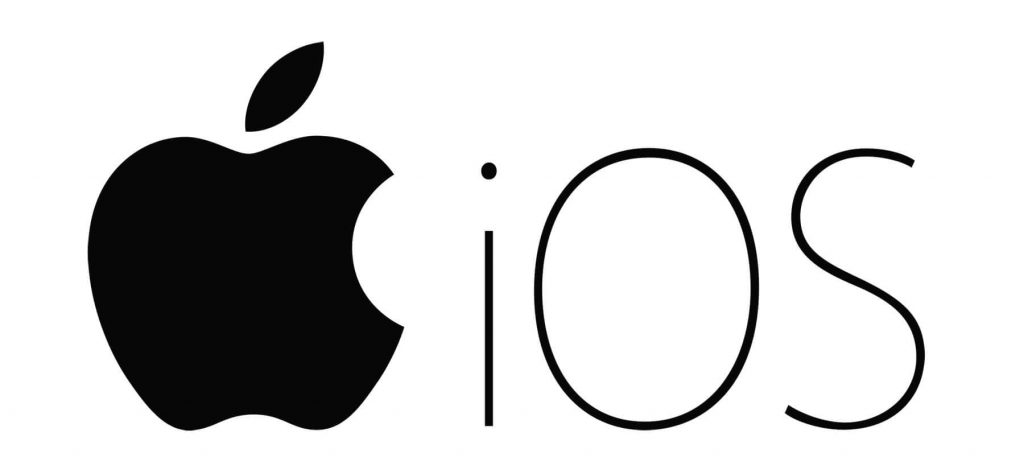
When it comes to choosing between Android vs iOS, there is no one-size-fits-all answer. It ultimately depends on your personal preferences and needs. Both operating systems have their own strengths and weaknesses.
If you value customization options and flexibility, then Android might be the better choice for you. With Android, you can tweak almost every aspect of your device’s interface and personalize it to suit your taste. From custom launchers to widgets, the possibilities are endless.
On the other hand, if simplicity and ease of use are important to you, then iOS might be a better fit. Apple’s operating system offers a seamless user experience with its intuitive interface and carefully curated app ecosystem. The design philosophy behind iOS focuses on delivering a polished and cohesive experience across all devices.
Another factor to consider is app availability. While both platforms offer millions of apps in their respective app stores, some developers may prioritize one platform over the other when it comes to releasing new features or updates. If there are specific apps or games that you rely on heavily, it’s worth checking if they are available on both platforms before making a decision.
Security is another crucial consideration in today’s digital landscape. Historically, iOS has been touted as more secure due to its closed ecosystem and stringent App Store review process. However, recent advancements in Android security have narrowed this gap significantly.
Affordability plays a role too. Generally speaking, Android devices tend to offer more affordable options across different price ranges compared to iPhones which tend to be pricier but come with premium build quality.
After examining the various aspects of Android vs iOS, it is clear that both operating systems have their own strengths and weaknesses. The choice between the two ultimately depends on your personal preferences and requirements.
If you value a highly customizable user interface, a wide range of device options, and affordability, then Android may be the better option for you. With its open-source nature, Android allows users to tailor their devices to suit their needs while offering a vast selection of smartphones at different price points.
On the other hand, if you prioritize simplicity, seamless integration with other Apple products, top-notch security features, and an extensive ecosystem of premium apps, then iOS might be more suited to your needs. Apple’s closed system ensures tighter control over software updates and app quality assurance.
Looking towards the future, both Android vs iOS are poised for further growth and innovation. As technology continues to advance rapidly in areas such as artificial intelligence (AI), augmented reality (AR), and virtual reality (VR), we can expect exciting developments from both platforms.
There is no definitive answer to which operating system is better – it all comes down to personal preference. It’s important to consider factors such as usability requirements, budget constraints, desired level of customization or simplicity when making your decision.
So whether you’re an avid tech enthusiast or simply someone looking for a reliable smartphone experience that suits your lifestyle best – take some time to explore the features offered by both Android vs iOS before making your final choice.